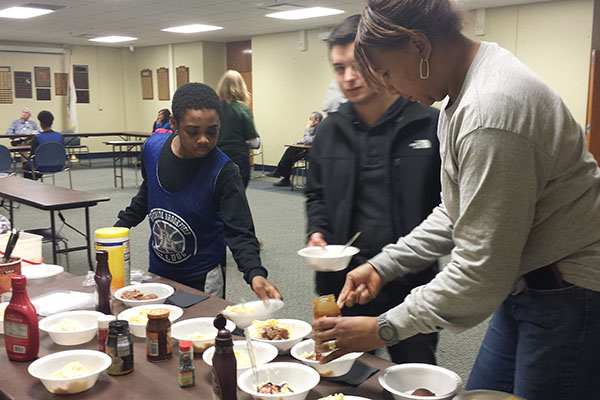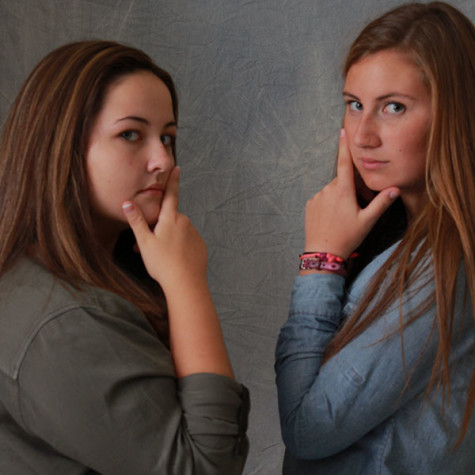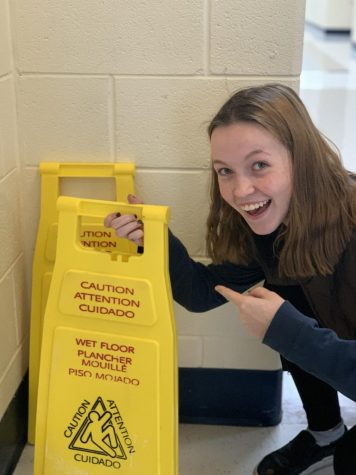Lessons in tolerance and education from AACA

African American Cultural Association (AACA) sponsor Alison Jackson serves ice cream to those who attended a meeting with people who walked in Selma.
February 27, 2015
A month ago, I wrote an opinion article about how I felt RB had dealt, or not dealt, with controversy arising from the Michael Brown death in Ferguson. Following the story, African American Cultural Association (AACA) sponsor Alison Jackson invited me to an event that the association was hosting where Riverside Police Sergeant Jeff Miller and Officer Isaac Hamilton spoke to club members. The topics of conversation ranged from our experiences with law enforcement to the controversial nature of racial inequality and police brutality on a national level.
After attending the meeting and interacting and listening to both the police and the members of the association, one quote from AACA student Bryan Wilson, provided in a subsequent interview, particularly stood out to me…
“I think the most important thing to do as a school is stay educated,” Wilson said. “We need to keep educating ourselves and others so we can better understand each other.”
As Black History Month comes to a close, unresolved issues do not. The past, present, and future of African Americans remains a legitimate and vital topic of discussion in this month and every other month. This month, we as a nation have seen education, demonstration, and representation through pop culture, entertainment, and art. Big events like Essence’s Black Women in Hollywood Luncheon, the Grammy Awards, and the Academy Awards that featured Best Picture nominee Selma highlighted and promoted cultural and racial awareness. Cases like Michael Brown’s and Eric Garner’s that occurred only a few months before set the tone and the background for these celebrations and commemorations.
Here at RB, the conversation with AACA opened my eyes in an entirely different way. As Miller and Hamilton answered questions and talked with students, I learned and realized a lot. I had the unique opportunity to see how this event benefited all who attended. Everyone walked out with a more open mind.
“[The event] was amazing,” Wilson said. “The greatest part was to see us together as a community. Everyone had fun, but more importantly, it helped bring us together.”
The discussion helped me to better understand national events like Ferguson. I thought about how, as a society, we are so quick to make judgments or to say things that we don’t mean. I heard Jackson talk about how events like Ferguson put the notion of “enforcement vs. us” in the forefront of our minds and how it is a lot more complex than that.
“I don’t know of any police officer that goes to work saying, ‘I want to kill somebody today.’ They don’t want that, but they find themselves facing dangerous situations every day in order to protect us,” Jackson said.
Ignorance can strengthen this stigma. If we hear something about the Michael Brown case, for example, through a news headline or a casual conversation, only some of us decide to look into what we have heard, but many of us may still continue talking about things we are not fully aware of. This reaction can become amplified on social media. All of a sudden, we believe that all police are out to hurt us.
“The same community that harasses the police,” Jackson said, “if they have a sister or an aunt or a mother who is assaulted, raped, or robbed, who do they call? They call the police. And the police come regardless. People forget that police officers have families. That officer is somebody’s son, daughter, mother, or father.”
Let’s start a conversation about being knowledgeable. I’m not here to say whether Michael Brown’s death or Eric Garner’s death stemmed from racial discrimination. There will be corrupt police officers, just as there are corrupt people in every profession. That said, I do believe there is an ignorance gap that, as a school, community, and nation, we can shorten and ultimately close.
Stay educated. Become knowledgeable. Our school halls and meetings like the one at AACA are a great place to start.
It is no longer (nor has it ever been) cool to not know what you are talking about. Have an opinion, but let it be an educated one. Voice that opinion out loud, but take time to listen to others. Act on your opinions, but act in a way that will encourage a better tomorrow.


